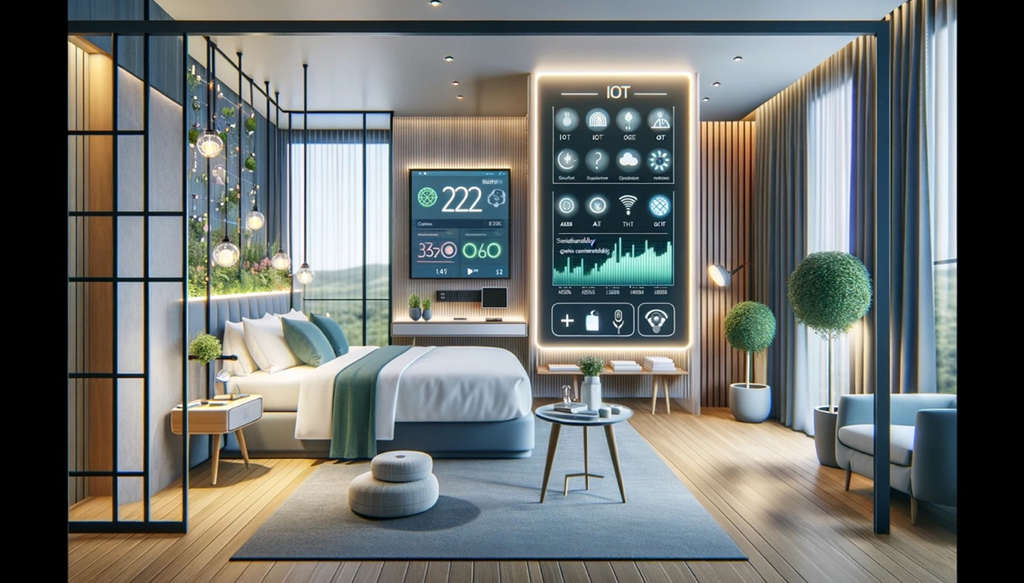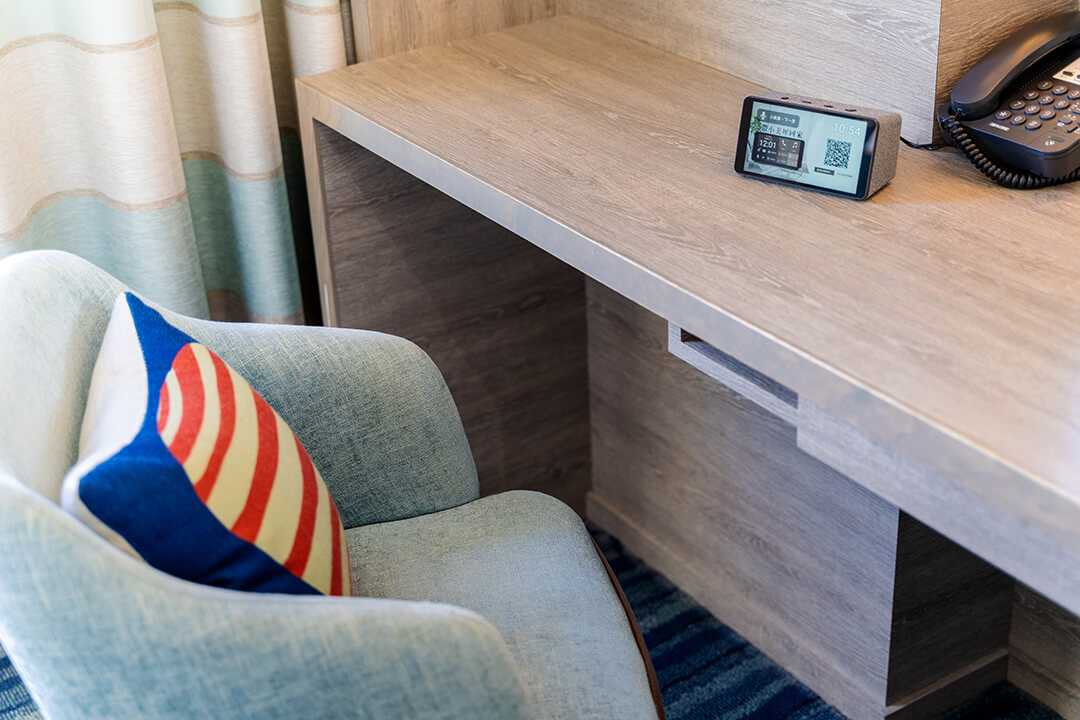In an era marked by digital transformation and escalating demands for sustainability and corporate social responsibility (CSR), the hospitality industry faces a pivotal opportunity to redefine its operational and strategic frameworks.
To bolster Environmental, Social, and Governance (ESG) and CSR objectives, Terence Ronson, a hospitality professional, technology consultant, public speaker and inventor, offers a strategic blueprint for leveraging advanced technologies to steer the industry toward unparalleled sustainability, innovation, and social responsibility.
This post outlines his vision for the integration of advanced technologies, including network upgrades, system integration, intelligent technologies, electric vehicles (EVs), autonomous vehicles (AVs), and the transition to cloud and Software as a Service (SaaS) computing.
Strategic Technological Transformation

Network Infrastructure and Cloud Computing
The foundation of this transformative vision lies in upgrading network infrastructure and embracing cloud computing. Transitioning from legacy copper-based networks to advanced, sustainable infrastructures enhances operational efficiency and environmental sustainability. Enhanced Wi-Fi capabilities facilitate wireless communication, support EV charging stations, and prepare for the integration of AV services.
Meanwhile, the shift towards cloud and SaaS computing revolutionizes data management and operational processes, offering scalability, flexibility, improved security, and significant cost savings. Cloud computing enables real-time data analytics, crucial for monitoring energy consumption, guest preferences, and operational efficiency.
System Integration and Smart Technologies
Integrating disparate hotel systems through cloud-based platforms is essential for achieving seamless operational efficiency, guest satisfaction, and sustainability. IoT and AI technologies, empowered by cloud computing, transform hotels into intelligent, sustainable properties.
For example, IoT sensors can monitor and adjust energy and water usage in real time, while AI algorithms analyze data to identify patterns and recommend optimizations. This technological ecosystem supports the infrastructure for EV and AV, providing actionable insights for reducing carbon footprints and enhancing guest experiences.
Renewable Energy and Transportation Innovations
Sustainability in the hospitality industry extends beyond operational efficiency to include adopting renewable energy sources and innovative transportation solutions. Cloud-based monitoring and management systems for renewable energy sources, such as solar panels and wind turbines, ensure that facilities and EV charging stations operate efficiently and sustainably.
For example, initiatives implemented on Windward Islands have significantly reduced its carbon footprint by integrating renewable energy with its EV charging infrastructure, showcasing a commitment to environmental stewardship.
Empowering Through Technology
The transition to cloud and SaaS platforms underpins efforts to empower staff and engage guests in sustainability practices. Digital training platforms offer scalable solutions for educating employees about sustainability, EV and AV technologies, and CSR practices, enhancing their ability to contribute to the hotel's sustainability goals. Eco-Lodge's e-learning initiative exemplifies how technology can foster a culture of environmental stewardship and social responsibility among staff, preparing them for future technological advancements and their implications for sustainability.
Transparent Reporting and Stakeholder Engagement
Transparency and accountability are critical for effective CSR and ESG strategies. Cloud-based digital tools facilitate compliance, sustainability reporting, and real-time monitoring, enhancing transparency and stakeholder engagement.
The Vista Hotels Group's digital sustainability dashboard, powered by cloud technology, provides stakeholders with real-time data on energy consumption, water usage, waste management, and the utilization of EV charging stations. This level of transparency boosts investor confidence and guest loyalty and demonstrates the hotel's commitment to sustainability and social responsibility.
CSR and ESG initiatives
Several leading hotel chains implement CSR and ESG initiatives through technology. These initiatives range from energy efficiency and waste reduction to supporting local communities and enhancing guest experiences. Here are a few examples:
Marriott International
Sustainability and Social Impact Platform: Serve 360
Marriott International has developed Serve 360, a comprehensive platform for guiding its CSR and sustainability efforts. This initiative includes goals for reducing water consumption, carbon emissions, and waste and supporting sustainable sourcing. Marriott leverages technology in various ways, including using energy-efficient systems in buildings, intelligent room technologies for reducing energy and water usage, and digital platforms for enhancing guest engagement in sustainability practices.
For more information on Marriott International's Serve 360 platform and its sustainability initiatives, you can visit Marriott's Serve 360.
Hilton
LightStay Program
Hilton's LightStay program is an award-winning performance measurement system used across the company's properties to reduce environmental impact. LightStay provides a framework for tracking and measuring all hotels' energy use, water use, waste, and carbon output. The system allows properties to identify areas for improvement and implement specific projects to reduce their environmental footprint, such as installing energy-efficient lighting and HVAC systems and using innovative technology to manage resource use more effectively.
Details about Hilton's LightStay program and its approach to sustainability can be found at: https://cr.hilton.com/
IHG (InterContinental Hotels Group)
IHG Green Engage System
IHG has implemented the IHG Green Engage system, an online sustainability program that allows hotels to track, measure, and report on their carbon footprint and utility consumption. The system offers hotels recommendations on reducing their impact and improving their overall sustainability. This includes energy efficiency measures, waste management, and water conservation strategies. IHG also focuses on digital guest experiences to reduce paper usage and enhance efficiency.
For more information on the IHG Green Engage system and IHG's commitment to sustainability, visit: https://www.ihgplc.com/en/responsible-business.
Accor
Planet 21 Program
Accor's Planet 21 program demonstrates the group's commitment to sustainable development. The program focuses on food and beverage sustainability, reducing energy and water consumption, and promoting biodiversity. Accor uses technology to monitor energy and water usage, reduce waste through digital solutions (like digital check-ins and check-outs to reduce paper usage), and engage guests and employees in sustainability initiatives through apps and digital platforms.
Accor's Planet 21 program details and its sustainability efforts are available at: https://group.accor.com/en/commitment.
Hyatt
Environmental Sustainability Strategy
Hyatt's environmental sustainability strategy includes reducing energy and water consumption, sourcing sustainably, and reducing waste. Hyatt utilizes technology in various forms, including implementing hotel energy management systems to optimize heating, ventilation, and air conditioning (HVAC) performance and using water-saving technologies to reduce consumption. Additionally, Hyatt engages guests in sustainability efforts through digital platforms and encourages participation in green programs.
To learn more about Hyatt's environmental sustainability strategy and initiatives, you can visit: https://about.hyatt.com/en/world-of-care.html

These hotel chains exemplify the significant enhancement of sustainability and social responsibility through the integration of technology into their CSR and ESG initiatives. By leveraging digital tools and platforms, they not only monitor and reduce their environmental impact but also engage with guests and employees on sustainability issues, contributing positively to the communities in which they operate.
By adopting this transformative vision, the hospitality industry can meet contemporary travelers' expectations, enhance operational efficiency, and set new standards for CSR in the digital age. This commitment to sustainability and innovation will redefine the hospitality experience and position the industry as a leader in the global movement toward a more sustainable and responsible future.
The path forward requires a commitment to continuous innovation, collaboration, and a deep understanding of the evolving expectations of guests and stakeholders. As the industry embarks on this transformative journey, it will set new benchmarks for sustainability and social responsibility, ensuring a prosperous future for all.

Terence Ronson is the Managing Director of Pertlink Limited. He often chairs and speaks at global industry events and sits on various advisory boards, in addition to holding a Visiting Lecturer position at Hong Kong Polytechnic.







